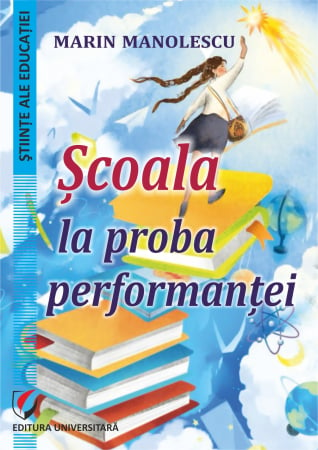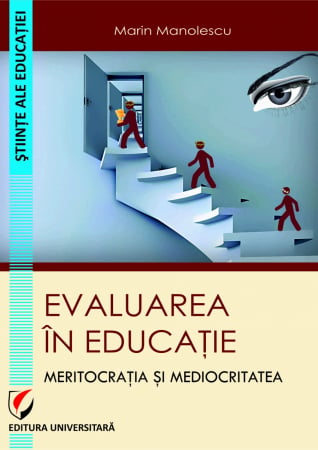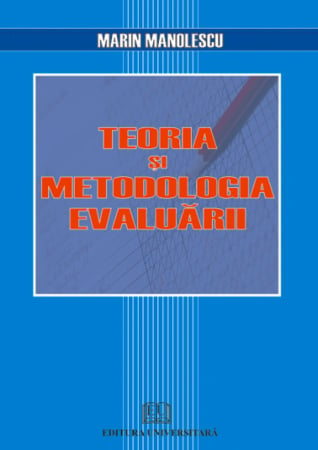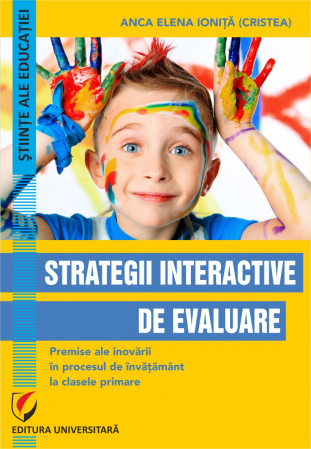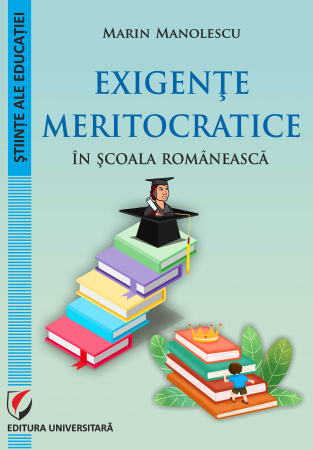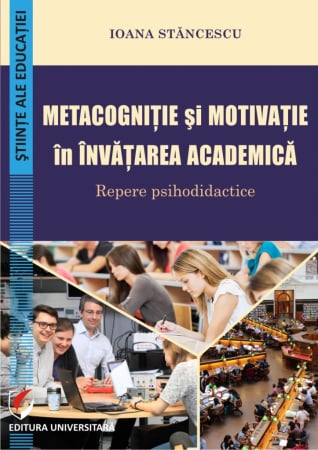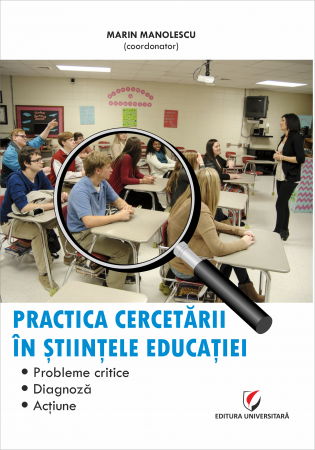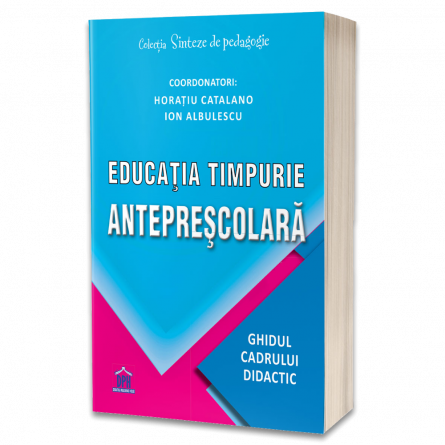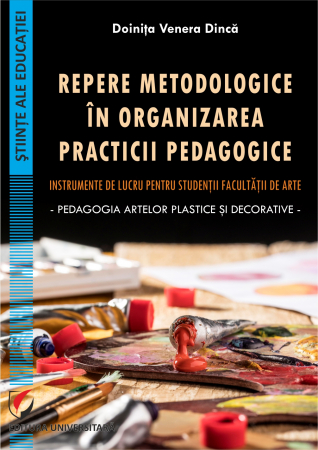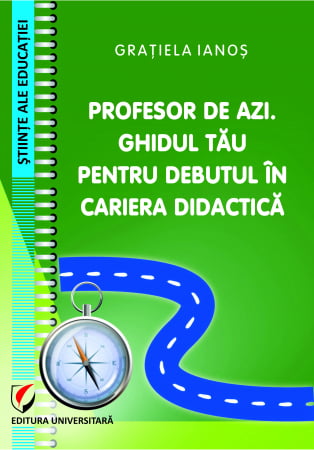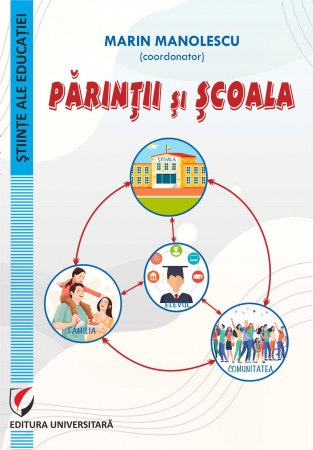Manuscript proposals: [email protected] / 0745 204 115 //// Tracking orders Individuals / Sales: 0745 200 357 / Orders Legal entities: 0721 722 783
Publisher: Editura Universitară
Author: Ioan Neacsu, Antonia Damian
ISBN: 978-606-28-1269-0
DOI: https://doi.org/10.5682/9786062812690
Publisher year: 2021
Edition: I
Pages: 208
Product Code:
9786062812690
Do you need help?
0745 200 357
- Description
- Download (1)
- Authors
- Content
- More details
- Reviews (0)
The book Reading and the formation of reading competence sets in motion a necessary effective-mental energy, dynamizes the vertebral relationship between searches and answers to questions such as: Why and how real is the statement according to which reading is on a downward trend today? How do we form and demonstrate the reading competence necessary to reach the standards of modern education?
The justifying motivations are related to the presence of some factors such as: today's time and times, the option for the benefits of the new technological means of fast communication of information, of reducing the efforts and the conditions of documentation. School, high-performance education and competition require students to read deeply, reading skills, qualified assistance and creative study, practicing reading as a strategy to get out of indifference to culture and deserved success.
Reading the book ensures the originality, the thoroughness of the investigations, the stability of the added values, the realization of the personal projects through the science of the book, through the communion with other experiences, with creative authors of wide horizon of the general culture and, maybe, happiness.
The content of the book synthesizes information based on studies, experiences and obvious evidence, prepares the vibration of later writing, energizes the refinement of the imaginary, amplifies the values of this guide, offers concrete research models, presents effective methodological extensions for teaching and learning texts-narrative, dramatic, lyrical, symbolic, scientific, plastic, etc.
The volume is useful for teachers, parents, pupils, students, school inspectors, researchers, decision makers, all lovers of useful and enjoyable readings.
Prof. univ. emeritus Dr. Ioan Neacsu
The justifying motivations are related to the presence of some factors such as: today's time and times, the option for the benefits of the new technological means of fast communication of information, of reducing the efforts and the conditions of documentation. School, high-performance education and competition require students to read deeply, reading skills, qualified assistance and creative study, practicing reading as a strategy to get out of indifference to culture and deserved success.
Reading the book ensures the originality, the thoroughness of the investigations, the stability of the added values, the realization of the personal projects through the science of the book, through the communion with other experiences, with creative authors of wide horizon of the general culture and, maybe, happiness.
The content of the book synthesizes information based on studies, experiences and obvious evidence, prepares the vibration of later writing, energizes the refinement of the imaginary, amplifies the values of this guide, offers concrete research models, presents effective methodological extensions for teaching and learning texts-narrative, dramatic, lyrical, symbolic, scientific, plastic, etc.
The volume is useful for teachers, parents, pupils, students, school inspectors, researchers, decision makers, all lovers of useful and enjoyable readings.
Prof. univ. emeritus Dr. Ioan Neacsu
-
Reading and training of reading competence. Theory, research, applications
Download
IOAN NEACSU
ANTONIA DAMIAN
ANTONIA DAMIAN
READING - UNIVERSE OPEN TO QUESTIONS / 8
The premises of a well - argued answer / 10
CHAPTER I. SCHOOL CURRICULUM AND THE UNIVERSE OF GYMNASIUM READING / 15
1. The corpus and the articulations of the gymnasium curriculum - constructive landmarks / 15
1.1. Concepts, objectives, explanatory factoriality / 15
1.2. School education and training of reading skills. Definition and taxonomies / 17
1.3. The content of school readings: the double status of sources and resources / 26
2. Reading processes - optimizations through the strategy of didactic transposition / 27
3. Students' reading in international assessments - comparative benchmarks / 29
4. Explanatory models for the formation of the lectoral conduct / 36
4.1. The theory of language learning in the sensitive period / 36
4.2. The theory of cognitive organizers in learning to read / 37
4.3. The model of full learning and the limits of reading in school / 38
4.4. The experiential learning model / 39
4.5. The reading learning model oriented towards the development of critical thinking / 39
4.6. Theory of learning with the help of mental maps / 31
CHAPTER II. LECTOR COMPETENCE: FOCUSES ON ACTION VECTORS / 47
1. Reading text - open support for self-knowledge / 47
2. Teachers - constructor trainers of lectoral competences / 53
3. Initiation strategies in the formation of lectoral competencies / 57
CHAPTER III. CURRICULAR IDENTITY LEARNING UNITS - TEACHING BASES / 64
1. Elements of the methodology of reading fairy tales, stories, legends / 64
2. Reading lyrical texts - a minimum of methodological poetry / 71
3. Reading non-literary texts-dialogue with signs, images and symbols / 76
3.1. Indicative question marks / 76
3.2. Symbols - a language with specific values / 77
3.3. The practice of reading descriptive texts + symbols: semiotic landmarks of initiation / 80
4. Reading written texts in the form of notes, notes and homework / 82
5. Reading texts with artistic and interdisciplinary values / 86
6. Reading the written press in social media for children / 90
CHAPTER IV. SCIENTIFIC RESEARCH IN THE FIELD OF READING - DESIGN AND METHODOLOGY / 94
1. Open the problem / 94
2. Reading and the library today - concepts necessary for empirical research / 95
3. Interrogations in the horizon of concrete research / 97
4. Landmarks regarding the purpose and objectives of the research / 98
5. Research variables / 100
6. Research framework hypotheses / 102
7. The sample. Sampling. Features / 106
8. Methods, techniques and tools for research and data collection / 109
8.1. Psychopedagogical observation / 109
8.2. Questionnaire - based survey method / 110
8.3. Interview - exploratory survey method / 113
8.4. Focus group / 114
8.5. Case study / 114
8.6. Lectoral competence evaluation sheet - relevant analytical-synthetic method / 115
8.7. Narrative method - model of investigative exercise with explanatory role / 116
8.8. Study of school documents / 118
CHAPTER V. RESULTS. INTERPRETATIONS AND SHORT COMMENTS / 119
1. School educational conduct related to the formation of reading competence / 120
2. The transfer of knowledge, abilities, competences in the students' reading conduct / 136
CHAPTER VI. APPLICATIONS IN FUNCTIONAL-INNOVATIVE DIDACTICS: CONTENTS, PROGRAMS, SCENARIOS / 156
1. Didactics of reading - constructive horizons of school practice / 156
2. Motivating management of early reading activities / 162
3. Curricular project: CDS Course Program "Reading - method, technique and art of learning to read" / 169
4. Didactic project: Transdisciplinary workshop / 176
5. Integrated didactic scenario project - application at the gymnasium / 185
THE EPILOGUE OF THE HOPE OF LOVE OF READING / 197
BIBLIOGRAPHY / 199
ANNEXES / 204
Annex 1/204
Annex 2/205
Annex 3/206
Annex 4/207
Annex 5/208
The premises of a well - argued answer / 10
CHAPTER I. SCHOOL CURRICULUM AND THE UNIVERSE OF GYMNASIUM READING / 15
1. The corpus and the articulations of the gymnasium curriculum - constructive landmarks / 15
1.1. Concepts, objectives, explanatory factoriality / 15
1.2. School education and training of reading skills. Definition and taxonomies / 17
1.3. The content of school readings: the double status of sources and resources / 26
2. Reading processes - optimizations through the strategy of didactic transposition / 27
3. Students' reading in international assessments - comparative benchmarks / 29
4. Explanatory models for the formation of the lectoral conduct / 36
4.1. The theory of language learning in the sensitive period / 36
4.2. The theory of cognitive organizers in learning to read / 37
4.3. The model of full learning and the limits of reading in school / 38
4.4. The experiential learning model / 39
4.5. The reading learning model oriented towards the development of critical thinking / 39
4.6. Theory of learning with the help of mental maps / 31
CHAPTER II. LECTOR COMPETENCE: FOCUSES ON ACTION VECTORS / 47
1. Reading text - open support for self-knowledge / 47
2. Teachers - constructor trainers of lectoral competences / 53
3. Initiation strategies in the formation of lectoral competencies / 57
CHAPTER III. CURRICULAR IDENTITY LEARNING UNITS - TEACHING BASES / 64
1. Elements of the methodology of reading fairy tales, stories, legends / 64
2. Reading lyrical texts - a minimum of methodological poetry / 71
3. Reading non-literary texts-dialogue with signs, images and symbols / 76
3.1. Indicative question marks / 76
3.2. Symbols - a language with specific values / 77
3.3. The practice of reading descriptive texts + symbols: semiotic landmarks of initiation / 80
4. Reading written texts in the form of notes, notes and homework / 82
5. Reading texts with artistic and interdisciplinary values / 86
6. Reading the written press in social media for children / 90
CHAPTER IV. SCIENTIFIC RESEARCH IN THE FIELD OF READING - DESIGN AND METHODOLOGY / 94
1. Open the problem / 94
2. Reading and the library today - concepts necessary for empirical research / 95
3. Interrogations in the horizon of concrete research / 97
4. Landmarks regarding the purpose and objectives of the research / 98
5. Research variables / 100
6. Research framework hypotheses / 102
7. The sample. Sampling. Features / 106
8. Methods, techniques and tools for research and data collection / 109
8.1. Psychopedagogical observation / 109
8.2. Questionnaire - based survey method / 110
8.3. Interview - exploratory survey method / 113
8.4. Focus group / 114
8.5. Case study / 114
8.6. Lectoral competence evaluation sheet - relevant analytical-synthetic method / 115
8.7. Narrative method - model of investigative exercise with explanatory role / 116
8.8. Study of school documents / 118
CHAPTER V. RESULTS. INTERPRETATIONS AND SHORT COMMENTS / 119
1. School educational conduct related to the formation of reading competence / 120
2. The transfer of knowledge, abilities, competences in the students' reading conduct / 136
CHAPTER VI. APPLICATIONS IN FUNCTIONAL-INNOVATIVE DIDACTICS: CONTENTS, PROGRAMS, SCENARIOS / 156
1. Didactics of reading - constructive horizons of school practice / 156
2. Motivating management of early reading activities / 162
3. Curricular project: CDS Course Program "Reading - method, technique and art of learning to read" / 169
4. Didactic project: Transdisciplinary workshop / 176
5. Integrated didactic scenario project - application at the gymnasium / 185
THE EPILOGUE OF THE HOPE OF LOVE OF READING / 197
BIBLIOGRAPHY / 199
ANNEXES / 204
Annex 1/204
Annex 2/205
Annex 3/206
Annex 4/207
Annex 5/208
In the natural logic of the things we face in schools, high schools, faculties and not only, there are moments when the act of formation, manifestation and evaluation of reading competence, as well as the specific universe of the sphere of justifying motivations become centers of our power to learn. to cultivate ourselves, to usefully and pleasantly value our existential time.
The vocation of constant judgments in harmony with evaluative-reflexive judgments allows us to face many questions and, naturally, concerns to provide clarifying answers and supporting arguments throughout this paper.
So, we could start with the question of initiatory causality, and, along the way, of the one regarding the recipients, completed with the famous and provocative question: how do we proceed to get closer to an optimal teaching professional?
To the question: "Why is the thematic core of this paper the reading and formation of reading competence, either of a literary text or of a non-literary text encountered in today's school curriculum?", The answer involves a continuous constructive, interrogative and creative correlational exercise. , which we appreciate as necessary and useful in the theory and practice of modern education.
Simplified analysis of the complexity of the structure of this creative exercise leads us to the following statements of assertive-interrogative expression:
• What is the essential human nature of the reading architecture present in the curriculum?
• What is the student's initiation in reading after learning the alphabet known, recognized, read, pronounced, then written and evaluated?
• What is the status of reading today and how does it work in school, at various levels of schooling, depending on the specificity of the text / genre of the non-literary literary work?
• Has anything changed in the forms, types and process of school reading and what are the arguments for supporting these changes in the teaching of the typologies designed and practiced?
• Why was it reduced from the presence of simple human curiosity in the field of book reading related to the innocence of childhood, adolescence and post-adolescence, each with the start, continuity and / or discontinuity of access to the fundamental readings that took place?
• Why is the need so necessary to create the environment / context of emotional affective states inside or outside the reading text, some associated or not associated with it, to which we should pay attention or priority compared to other specific motivations or behavioral codes?
• How do we stimulate the adventures of the imaginary and the creation of childhood in penetrating the diversity of beauties highlighted by the adult parent, teacher, colleagues, or discovered by the subject himself in the process or end of reading?
• What real causes do we identify or invoke when it is stated that today children / students, even not a few adults, no longer read literature, especially poetry as much as before?
• Reading (we will say more correctly reading) is one of the explanatory targets that induce many of the behaviors that disfavor the communications / readings / readings present on other information channels - telephone, internet, electronic communication channels, TV shows, digital games, etc. offered / received and that repeatedly focus attention, take from the available, planned or recommended time to go to the library (where our real school libraries are from another time, or promised in a virtual form, effect of the concrete existence of other electronic devices in possession only of some parents and children and who can quickly replace the temptation or the more difficult intention of realizing and materializing a published text?
• With what hypotheses we operate or enter into the research of pragmatic things, opinions, attitudes and behaviors of honest, sincere confession, anticipating or preparing inexpensive financial, cognitive or temporal solutions, qualitatively efficient and effective for overcoming situations.
Let's agree with Nicolae Iorga, the renowned historian, man of choice, encyclopedic and vast culture of the book, who wrote "Oh! My holy books, better or worse, which my favorable fate has brought out before me, as much as I owe you as a man, as I am truly a man ”.
The reference to reading and penetrating universally books, school or non-school, is the most viable and natural foundation of children's education to progressively understand their own world and that of others, perhaps through a more nuanced and richer mental, action and attitudinal model that -we could also use them as educators or parents.
Going through the way of clarifying some areas destined to apply the principle of simplified causality, we will ask ourselves, formulating some statements, somewhat provocative, among which: why are children no longer mastered by the dream of having books, , avoiding the excuse of the pressures of tempting and repeated offers of the media, television, telephone, games and devices, as we previously expressed more widely and more bought by parents, willingly or unwillingly (see online education) ?!
Is the perception of color schemes or images understood easier, faster, more productive than the meanings or spell of the imagination, of the potential gymnastics of the mind required by the world of stories, of fairy tales about "beautiful dragons and girls?", Of science fiction books. , of conquering biographies, with effects generating joy or sadness, demanding new linguistic competences, images and emotional feelings produced by a special world, unique through strong characters or problem-solving situations?
In the conditions of permanent education, of the new channels with pressures and horizons of communication sometimes with significant aggressiveness towards the learning behavior through reading of children, adolescents and young people, school and school people of today have at least formally tasks related to skills development. and stable value attitudes, with a special dynamic corresponding to the paradigms of modern knowledge, through social, group, family, personal institutions and means and, naturally, through the mediation of the book / books!
In such a context, reading can and certainly has a decisive functional role. Also, the formation of the taste for reading and the cultivation / enrichment of the chosen language of expression, nuanced by reading, is formed and developed adequately, stylized and clean since the young school age and, especially, especially in the gymnasium.
The formation of skills and abilities relevant for the autonomous, critical and creative study of a literary or non-literary text solves many of the problems that appeared during the school period, thus becoming a requirement and a standard for achieving the quality of current modern education.
Returning to the proposed topic, we can say, without worrying about strict concerns about indications of originality and methodological efficiency, that the current rate is of some social significance, is challenging, relevant and has sufficient pragmatic reasons to optimize progress in children's education.
Among these, we note the openness offered by our point of view (Neacsu, 2009), resuming a subtle and strong persuasive force of the following ideas, namely according to which: "A nation that does not read remains in a state of inferiority, without strength and impulse creative, meaningless, without sensitivity to line and radius, without passion for thought and beauty of meaning. The book is a tonic of miracle and eternity.
There are numerous studies of education and social economy and, especially, of the market regarding the funds allocated to education in Romania that focus on the precarious financial allocations destined to the book fund for school libraries, to which students could have access for the correct fulfillment of tasks. school, to expand the area of knowledge, in opposition to the existing deficient motivations. This creates the conditions for reducing the number of problems with the status of premises necessary to ensure a healthy, useful and usable economy in increasing the horizon of knowledge. There are a number of campaigns carried out by many NGOs and aimed at donating books by students and young people, relocating to schools sufficient funds to purchase books.
Our "game" in this thesis is tempted to penetrate and penetrated some of the white spots of lack of reading books. Moreover, they are lovers of the learning paradigm by reading books, by the undisguised didactic appeal to the recommended methods, practiced by the promoters of school readings in and out of school.
Thus, we wanted to demonstrate that the introduction as a subject of study in the school's decision of the optional subject "Reading method, technique and art of learning to learn by reading texts", students will succeed in understand that active reading is a first step in solving problems, in understanding abstract notions and concepts, in understanding literary texts and their message, in understanding the problems of life around them and thus can discover ways to solve them. All this will have as a final point the increase of the school progress.
From the intimate logic of the opening of the thesis reading, the following points are considered essential:
- Successful search inside the minds of high school children, especially those who are still learning to read, to form in time and time, reading skills;
- The normal attainment through persuasive effort of a continuous, active and productive state of sensitive knowledge of the educator through values of functional and deep ideational reading;
- The association in the child's mind "what?" and "how?", so that the information received by the brain is not yet fully prepared to go through the triad of the transition from global, to fragment and then, again to integrated, on the letter line sound syllable word, phrase, sentence, phrase, text;
- Producing the advance of the association of past experience, with the need to fill the gap, to the non-passive unit, with an opaque mental energy, biophysics and processors, involves the two cerebral hemispheres, symbolic;
- The theoretical-methodological premises are attached to the central idea according to which we learn to read, read to learn, make teaching efforts, look for arguments and make investigations to optimize reading / reading as learning, to reach the standards of a new style of being contemporary with the new paradigms of the knowledge society with the help of digital, intercultural axioms, of overcoming functional illiteracy, especially in rural areas, where the vulnerability of school education becomes a safe premise of inequality of opportunity, epistemological obstacle, limiting access to information civilization, to achieve creative, autonomous, effective thinking. Reading performance and the reality of reading competence in students has become a point of interest in international assessment (PISA 2002,2015).
Consequently, the paper consists of both theoretical chapters whose coherence provides a theoretical foundation, explaining the core concepts of the paper, both investigative by the status of exemplary logic of listed variables, the quality of hypotheses, the effort to penetrate the functional mechanisms of the mind of a sample from gymnasium schools in rural areas, educational deficits, together with gymnasium schools in urban areas in Buzau county, consisting of students, teachers, principals, parents, specialized inspectors.
These are associated correctly, balanced and timely a significant baggage of methods, techniques and tools for investigation, processing and interpretation of some of the results.
The most significant data of the paper are non-standardized, effects of opinions generated by the application of attitude scales, perception and self-perception questionnaires, student behavior observation sheets, checklist technique, value analysis, progress evaluation indicators, time chart, teacher profiles mentor.
Finally, the paper contains a group of programs, models and scenarios of applied functional didactics designed to awaken the pragmatic awareness of the formation of reading competence in high school students.
We will find a successful program of a relatively academic option on "Reading - method, technique and art of learning to learn by reading texts".
Complementary prove to be the components of synthesis limited to various effective learning techniques.
The thematic mini-cutouts of the didactic treatment specific to some traditional, innovative teaching-learning of some literary texts will prove to be valuable.
The scenarios of school and social success that will achieve the expected and deserved success will also prove the didactic projects adequate to orient the interdisciplinary mentality of the teachers of the language and communication specialty.
We will continue the analysis efforts, always promoting reasoned questions and answers and we hope for incentives for the dialogue already open.
The vocation of constant judgments in harmony with evaluative-reflexive judgments allows us to face many questions and, naturally, concerns to provide clarifying answers and supporting arguments throughout this paper.
So, we could start with the question of initiatory causality, and, along the way, of the one regarding the recipients, completed with the famous and provocative question: how do we proceed to get closer to an optimal teaching professional?
To the question: "Why is the thematic core of this paper the reading and formation of reading competence, either of a literary text or of a non-literary text encountered in today's school curriculum?", The answer involves a continuous constructive, interrogative and creative correlational exercise. , which we appreciate as necessary and useful in the theory and practice of modern education.
Simplified analysis of the complexity of the structure of this creative exercise leads us to the following statements of assertive-interrogative expression:
• What is the essential human nature of the reading architecture present in the curriculum?
• What is the student's initiation in reading after learning the alphabet known, recognized, read, pronounced, then written and evaluated?
• What is the status of reading today and how does it work in school, at various levels of schooling, depending on the specificity of the text / genre of the non-literary literary work?
• Has anything changed in the forms, types and process of school reading and what are the arguments for supporting these changes in the teaching of the typologies designed and practiced?
• Why was it reduced from the presence of simple human curiosity in the field of book reading related to the innocence of childhood, adolescence and post-adolescence, each with the start, continuity and / or discontinuity of access to the fundamental readings that took place?
• Why is the need so necessary to create the environment / context of emotional affective states inside or outside the reading text, some associated or not associated with it, to which we should pay attention or priority compared to other specific motivations or behavioral codes?
• How do we stimulate the adventures of the imaginary and the creation of childhood in penetrating the diversity of beauties highlighted by the adult parent, teacher, colleagues, or discovered by the subject himself in the process or end of reading?
• What real causes do we identify or invoke when it is stated that today children / students, even not a few adults, no longer read literature, especially poetry as much as before?
• Reading (we will say more correctly reading) is one of the explanatory targets that induce many of the behaviors that disfavor the communications / readings / readings present on other information channels - telephone, internet, electronic communication channels, TV shows, digital games, etc. offered / received and that repeatedly focus attention, take from the available, planned or recommended time to go to the library (where our real school libraries are from another time, or promised in a virtual form, effect of the concrete existence of other electronic devices in possession only of some parents and children and who can quickly replace the temptation or the more difficult intention of realizing and materializing a published text?
• With what hypotheses we operate or enter into the research of pragmatic things, opinions, attitudes and behaviors of honest, sincere confession, anticipating or preparing inexpensive financial, cognitive or temporal solutions, qualitatively efficient and effective for overcoming situations.
Let's agree with Nicolae Iorga, the renowned historian, man of choice, encyclopedic and vast culture of the book, who wrote "Oh! My holy books, better or worse, which my favorable fate has brought out before me, as much as I owe you as a man, as I am truly a man ”.
The reference to reading and penetrating universally books, school or non-school, is the most viable and natural foundation of children's education to progressively understand their own world and that of others, perhaps through a more nuanced and richer mental, action and attitudinal model that -we could also use them as educators or parents.
Going through the way of clarifying some areas destined to apply the principle of simplified causality, we will ask ourselves, formulating some statements, somewhat provocative, among which: why are children no longer mastered by the dream of having books, , avoiding the excuse of the pressures of tempting and repeated offers of the media, television, telephone, games and devices, as we previously expressed more widely and more bought by parents, willingly or unwillingly (see online education) ?!
Is the perception of color schemes or images understood easier, faster, more productive than the meanings or spell of the imagination, of the potential gymnastics of the mind required by the world of stories, of fairy tales about "beautiful dragons and girls?", Of science fiction books. , of conquering biographies, with effects generating joy or sadness, demanding new linguistic competences, images and emotional feelings produced by a special world, unique through strong characters or problem-solving situations?
In the conditions of permanent education, of the new channels with pressures and horizons of communication sometimes with significant aggressiveness towards the learning behavior through reading of children, adolescents and young people, school and school people of today have at least formally tasks related to skills development. and stable value attitudes, with a special dynamic corresponding to the paradigms of modern knowledge, through social, group, family, personal institutions and means and, naturally, through the mediation of the book / books!
In such a context, reading can and certainly has a decisive functional role. Also, the formation of the taste for reading and the cultivation / enrichment of the chosen language of expression, nuanced by reading, is formed and developed adequately, stylized and clean since the young school age and, especially, especially in the gymnasium.
The formation of skills and abilities relevant for the autonomous, critical and creative study of a literary or non-literary text solves many of the problems that appeared during the school period, thus becoming a requirement and a standard for achieving the quality of current modern education.
Returning to the proposed topic, we can say, without worrying about strict concerns about indications of originality and methodological efficiency, that the current rate is of some social significance, is challenging, relevant and has sufficient pragmatic reasons to optimize progress in children's education.
Among these, we note the openness offered by our point of view (Neacsu, 2009), resuming a subtle and strong persuasive force of the following ideas, namely according to which: "A nation that does not read remains in a state of inferiority, without strength and impulse creative, meaningless, without sensitivity to line and radius, without passion for thought and beauty of meaning. The book is a tonic of miracle and eternity.
There are numerous studies of education and social economy and, especially, of the market regarding the funds allocated to education in Romania that focus on the precarious financial allocations destined to the book fund for school libraries, to which students could have access for the correct fulfillment of tasks. school, to expand the area of knowledge, in opposition to the existing deficient motivations. This creates the conditions for reducing the number of problems with the status of premises necessary to ensure a healthy, useful and usable economy in increasing the horizon of knowledge. There are a number of campaigns carried out by many NGOs and aimed at donating books by students and young people, relocating to schools sufficient funds to purchase books.
Our "game" in this thesis is tempted to penetrate and penetrated some of the white spots of lack of reading books. Moreover, they are lovers of the learning paradigm by reading books, by the undisguised didactic appeal to the recommended methods, practiced by the promoters of school readings in and out of school.
Thus, we wanted to demonstrate that the introduction as a subject of study in the school's decision of the optional subject "Reading method, technique and art of learning to learn by reading texts", students will succeed in understand that active reading is a first step in solving problems, in understanding abstract notions and concepts, in understanding literary texts and their message, in understanding the problems of life around them and thus can discover ways to solve them. All this will have as a final point the increase of the school progress.
From the intimate logic of the opening of the thesis reading, the following points are considered essential:
- Successful search inside the minds of high school children, especially those who are still learning to read, to form in time and time, reading skills;
- The normal attainment through persuasive effort of a continuous, active and productive state of sensitive knowledge of the educator through values of functional and deep ideational reading;
- The association in the child's mind "what?" and "how?", so that the information received by the brain is not yet fully prepared to go through the triad of the transition from global, to fragment and then, again to integrated, on the letter line sound syllable word, phrase, sentence, phrase, text;
- Producing the advance of the association of past experience, with the need to fill the gap, to the non-passive unit, with an opaque mental energy, biophysics and processors, involves the two cerebral hemispheres, symbolic;
- The theoretical-methodological premises are attached to the central idea according to which we learn to read, read to learn, make teaching efforts, look for arguments and make investigations to optimize reading / reading as learning, to reach the standards of a new style of being contemporary with the new paradigms of the knowledge society with the help of digital, intercultural axioms, of overcoming functional illiteracy, especially in rural areas, where the vulnerability of school education becomes a safe premise of inequality of opportunity, epistemological obstacle, limiting access to information civilization, to achieve creative, autonomous, effective thinking. Reading performance and the reality of reading competence in students has become a point of interest in international assessment (PISA 2002,2015).
Consequently, the paper consists of both theoretical chapters whose coherence provides a theoretical foundation, explaining the core concepts of the paper, both investigative by the status of exemplary logic of listed variables, the quality of hypotheses, the effort to penetrate the functional mechanisms of the mind of a sample from gymnasium schools in rural areas, educational deficits, together with gymnasium schools in urban areas in Buzau county, consisting of students, teachers, principals, parents, specialized inspectors.
These are associated correctly, balanced and timely a significant baggage of methods, techniques and tools for investigation, processing and interpretation of some of the results.
The most significant data of the paper are non-standardized, effects of opinions generated by the application of attitude scales, perception and self-perception questionnaires, student behavior observation sheets, checklist technique, value analysis, progress evaluation indicators, time chart, teacher profiles mentor.
Finally, the paper contains a group of programs, models and scenarios of applied functional didactics designed to awaken the pragmatic awareness of the formation of reading competence in high school students.
We will find a successful program of a relatively academic option on "Reading - method, technique and art of learning to learn by reading texts".
Complementary prove to be the components of synthesis limited to various effective learning techniques.
The thematic mini-cutouts of the didactic treatment specific to some traditional, innovative teaching-learning of some literary texts will prove to be valuable.
The scenarios of school and social success that will achieve the expected and deserved success will also prove the didactic projects adequate to orient the interdisciplinary mentality of the teachers of the language and communication specialty.
We will continue the analysis efforts, always promoting reasoned questions and answers and we hope for incentives for the dialogue already open.
If you want to express your opinion about this product you can add a review.
write a review

6359.png)
![Reading and training of reading competence. Theory, research, applications [1] Reading and training of reading competence. Theory, research, applications [1]](https://gomagcdn.ro/domains/editurauniversitara.ro/files/product/large/neacsu-si-damian_lectura-si-formara-competentei-lectorale_bt-3108-4490.jpg)
